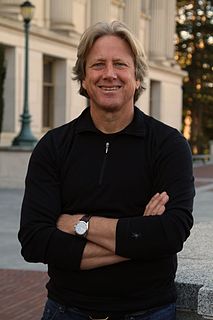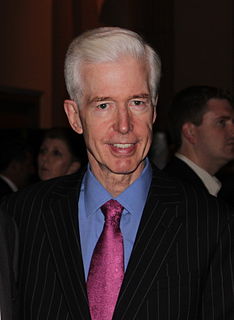A Quote by Laurie Anderson
Technology today is the campfire around which we tell our stories. There's this attraction to light and to this kind of power, which is both warm and destructive. We're especially drawn to the power. Many of the images of technology are about making us more powerful, extending what we can do. Unfortunately, 95 percent of this is hype, because I think we're powerful without it.
Related Quotes
Embedded in every technology there is a powerful idea, sometimes two or three powerful ideas. Like language itself, a technology predisposes us to favor and value certain perspectives and accomplishments and to subordinate others. Every technology has a philosophy, which is given expression in how the technology makes people use their minds, in how it codifies the world, in which of our senses it amplifies, in which of our emotional and intellectual tendencies it disregards.
We must ask whether our machine technology makes us proof against all those destructive forces which plagued Roman society and ultimately wrecked Roman civilization. Our reliance - an almost religious reliance - upon the power of science and technology to forever ensure the progress of our society, might blind us to some very real problems which cannot be solved by science and technology.
Our whole attitude about life is money-oriented. And money is one of the most uncreative things one can become interested in. Our whole approach is power-oriented and power is destructive, not creative. A man who is after money will become destructive, because money has to be robbed, exploited; it has to be taken away from many people, only then can you have it. Power simply means you have to make many people impotent, you have to destroy them - only then will you be powerful, can you be powerful.
The power paradox is that we gain power by advancing the welfare of other people and yet when we feel powerful, it turns us into impulsive sociopaths and we lose those very skills. If you're in the military, you gain power by forging strong ties in your comrades. And then the irony is that once we feel powerful and we are taken with our own success, we ignore the skills that got us power in the first place.
Space has not changed but technology has, in many cases, improved dramatically. A good example is digital technology where today's cell phones are far more powerful than the computers on the Apollo Command Module and Lunar Module that we used to navigate to the moon and operate all the spacecraft control systems.
It is unfortunately none too well understood that, just as the State has no money of its own, so it has no power of its own. All the power it has is what society gives it, plus what it confiscates from time to time on one pretext or another, there is no other source from which State power can be drawn. Therefore every assumption of State power, whether by gift or seizure leaves society with so much less power; there is never, nor can be, any strengthening of State power without a corresponding and roughly equivalent depletion of social power.
Sometimes I think the Congress feels that if you only decided tomorrow to switch to wind power that in two years we'd be getting 80 percent of our electricity from wind power. It's nonsense. Normally it takes 20 to 30 years after a new technology is demonstrated and deployed before it powers even 15 or 20 percent of the grid. There's this long lag time, and we haven't even decided which directions to go.



































